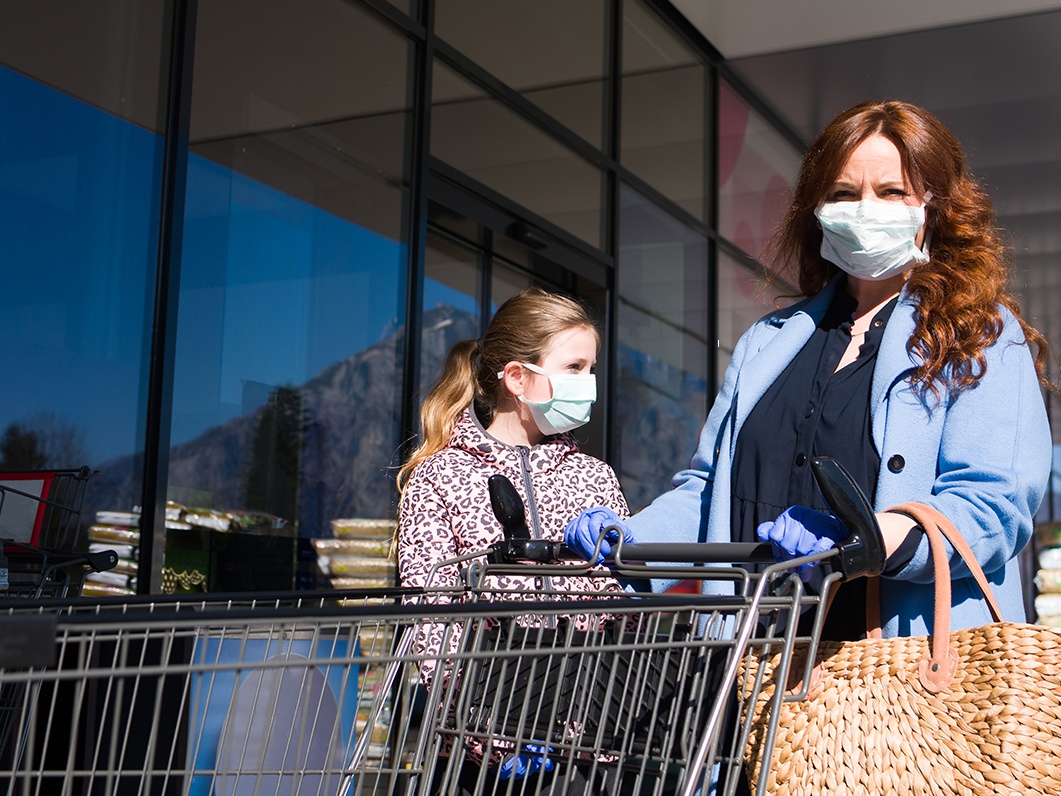Automated supermarket cart sterilizing frees up employees for other tasks
A fully automated cart cleaning system is being phased in by Hy-Vee, a 240-store retailer located in the Midwest. The company announced recently that by mid-November the new system fully cleans and sanitizes shopping carts after every use will be in use by its stores in the eight-state region.
The system, according to the store, can clean several carts quickly, freeing up employees who were manually disinfecting carts after each use. This new system not only eliminates the need for employees to do the cleaning but also sanitizes the entire cart, not just handles and other high-touch areas.
Randy Edeker, chairman, CEO and president of Hy-Vee, Inc., said in an Oct. 27 press release, “Since the beginning of the pandemic, it has been our desire to put Hy-Vee customers’ minds at ease with thorough sanitization measures. We are always looking at innovative ways to improve store operations, improve the shopping experience for customers and, most importantly, ensure the health and safety of our customers and our employees.”
The release also said, “Sterile Cart is manufactured by Minnesota-based IZZA Manufacturing and distributed by Ultra Green Packaging. Kristin Davidson of Ultra Green said the system was conceived and designed specifically to help mitigate the spread of COVID-19.”
Using a hospital-grade disinfectant that is proven to kill 99.9 percent of germs and viruses that cause illnesses, including coronavirus, the system ships fully assembled and takes up minimal space, 6’x4’, at the store. It also sanitizes one or two carts per second using a low-pressure spray system and a dry-in-place disinfectant.
“Since the beginning of the pandemic, Hy-Vee stores regularly clean carts throughout the day, and have sanitation wipes available where customers grab a cart. This new system eliminates the need to manually clean each cart while providing a more consistent and thorough disinfecting process,” the release added.
Other major retailers have been disinfecting/sanitizing carts for months, with superstore Walmart and Target among those dedicating employees to the task.
Target’s response to the virus, according to its website, includes increased cleanliness throughout its stores, mandatory masks (made available to shoppers without face coverings), monitoring and metering guest access, reminders for social distancing, quantity limits on in-demand items, dedicated shopping hours for vulnerable shoppers and store teams, plexiglass shields at checkout and cart/basket sanitizing.
Walmart’s COVID-19 protocol includes curbside pickup and delivery, with associate assistance in loading at curbside and doorstep delivery at home of both groceries and merchandise. Touch-free payment using debit/gift card stored in one’s phone is also available. In-store safety measures include required masks, social distancing, plastic shields at registers, health ambassadors staffing entrances, expanded hours and enhanced cleaning.
While all this has been going on at retail, e-commerce bloggers Lauren Toney, content specialist, and Sarah Davis, content marketing specialist, are taking a look at the continuing impact of COVID-19 on their website at https://www.roirevolution.com/blog/2020/10/coronavirus-and-ecommerce/ in an Oct. 27 update.
In a interesting Q4 stat compilation, the bloggers look at consumers and note that 12 percent more time has been spent with digital this year (Merkle); 10 percent more time spent on mobile this year (Merkle); 79 percent of consumers will continue to spend more conservatively in the coming months (Merkle); 11 percent of advertisers expect COVID-19 to significantly impact their ad spending in Q4 (Influencer Marketing Hub); 68 percent of advertisers expect COVID-19 to impact their ad spending into 2021 (Influencer Marketing Hub); 62 percent of global consumers shop online more now than before the pandemic (Bazaarvoice).



